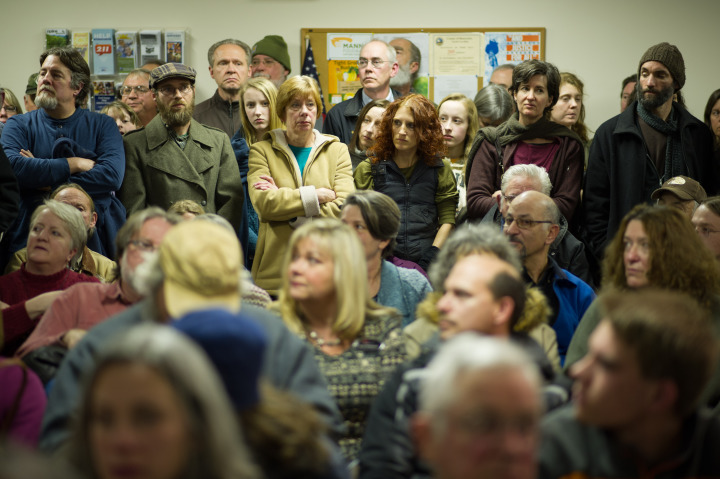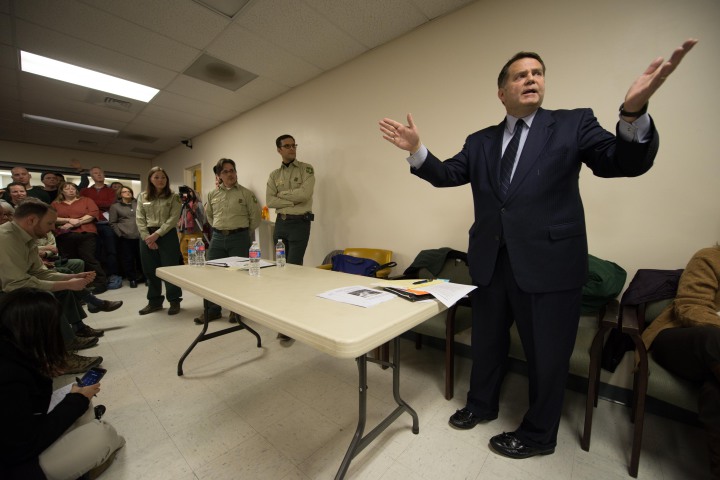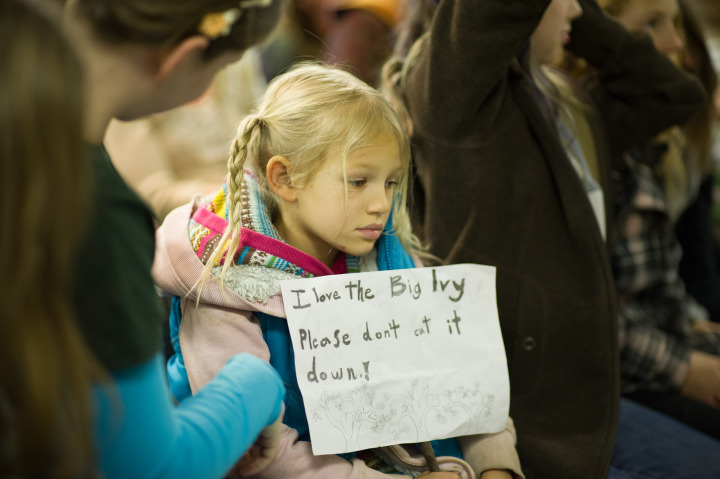An informational meeting regarding the U.S. Forest Service’s long term plans for the Big Ivy section of the Pisgah National Forest drew about 200 people in Barnardsville Feb. 5, with another 100 waiting outside to get in. The crowd voiced strong anti-logging opinions to forest rangers, who are in the process of drafting a new long-term plan for the forest.
“In the language of the plan, it said the forest was ‘suitable for timber production,'” said Matt McCombs, district ranger for the U.S. Forest Service. “Large-scale logging couldn’t be further from the truth. There is no current plan to log anywhere in the Big Ivy area. This is a critical time of public feedback and collaboration to shape future plans.”
McCombs’ speech did little to pacify the crowd, who lobbed question after question and opinion after opinion about the negative effects of logging, and the importance of leaving the old growth section untouched. There have been 24 public meetings since the 2012 three phase plan to “revitalize” the Nantahala and Pisgah National Forests was drafted. More meetings are scheduled for April.

“Some people think the forest plan was suggesting we were opening up a forest of 700,000 acres to logging. This is a draft map, with different management areas that dictate what can occur,” said McCombs, who remained unruffled. “We recognize the value people place on these resources, and we are happy to listen to what you have to say.”
When a question was fired from the crowd of “why is cutting necessary?” McCombs kept it light: “This is a loaded … a good question,” he juked, to laughter.
“It’s a tool to put logs on a truck and sustain the local economy, yes, but it also maintains wildlife habitation and watershed health,” he said, noting there hasn’t been a timber sale in the area in 25 years.
“Logging is one of the many things achieved through management tools and best practices. It’s certainly better now than the techniques used in the 1950s, which left a bad taste,” he said.

Deputy Forest Supervisor James Melonas said it’s important for the public to let the Forest Service know what’s important to them.
“Let’s look at alternative ways of managing the forest. Think, what are the things that are important to you in these special areas? We’d like to re-engage communities and forest stakeholders through more meetings in April,” he said. “Support the management area drafts that have what you feel is important.”





Before you comment
The comments section is here to provide a platform for civil dialogue on the issues we face together as a local community. Xpress is committed to offering this platform for all voices, but when the tone of the discussion gets nasty or strays off topic, we believe many people choose not to participate. Xpress editors are determined to moderate comments to ensure a constructive interchange is maintained. All comments judged not to be in keeping with the spirit of civil discourse will be removed and repeat violators will be banned. See here for our terms of service. Thank you for being part of this effort to promote respectful discussion.